CCR Creedence Clearwater Revival Willy and the Poorboys 12" Vinyl LP Album
"Willy and the Poor Boys" is the fourth album by Creedence Clearwater Revival, released in 1969
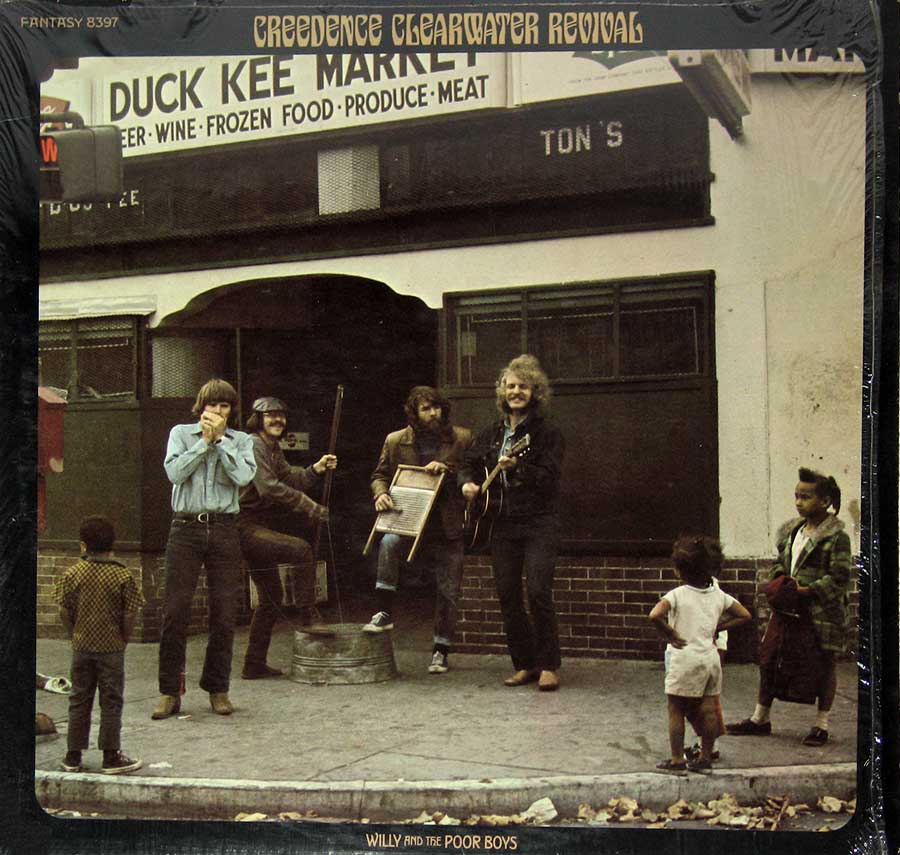
"Willy and the Poor Boys" is the fourth album by Creedence Clearwater Revival, released in 1969

|
Album Description:
The album opens with "Down on the Corner," a lively and upbeat track that showcases the band's tight harmonies and driving rhythm section. The song's catchy melody and sing-along chorus made it an instant hit, and it remains one of CCR's most popular tracks to this day. Other standout tracks on the album include "Fortunate Son," a scathing critique of the Vietnam War and the socio-political context of the time, and "The Midnight Special," a traditional folk song that showcases the band's blues influences and Fogerty's guitar work. Throughout the album, CCR's music is characterized by tight harmonies, powerful guitar riffs, and a strong rhythmic drive. The band's sound was instantly recognizable and helped establish them as one of the most popular rock bands of the era. The late 1960s were a time of significant social and political change in the United States. The country was still embroiled in the Vietnam War, and tensions were high between different segments of society. Music played an important role in this cultural context, with many artists using their music to express their political views and social commentary. "Willy and the Poor Boys" reflects this context in a number of ways. "Fortunate Son" is perhaps the most obvious example, with its direct criticism of the Vietnam War and the class divides that characterized the era. However, other tracks on the album, such as "Cotton Fields" and "The Midnight Special," also reflect the band's roots in American folk and blues traditions, which were themselves shaped by the social and cultural context of the time. |
|
Music Genre: American Roots Rock |
|
Album Production Information: The album: "Willy and the Poorboys" was produced by: John FogertyAlbum cover photos Basul Parik |
|
Record Label & Catalog-nr: Blue Label Fantasy 8397 Full Radial Stereo |
|
Media Format: 12" Vinyl Stereo Full-Length Long-Play Gramophone Record160 grams vinyl record Album weight: 280 gram |
|
Year & Country: 1969 Made in USA |
Band Members and Musicians on: CCR Creedence Clearwater Revival Willy and the Poorboys |
|
Complete Track Listing of: "Willy and the Poorboys" |
|
The Songs/tracks on "Willy and the Poorboys" are
|

Note: The photos on this page are taken from albums in my personal collection. Slight differences in color may exist due to the use of the camera's flash. Images can be zoomed in/out ( eg pinch with your fingers on a tablet or smartphone ).
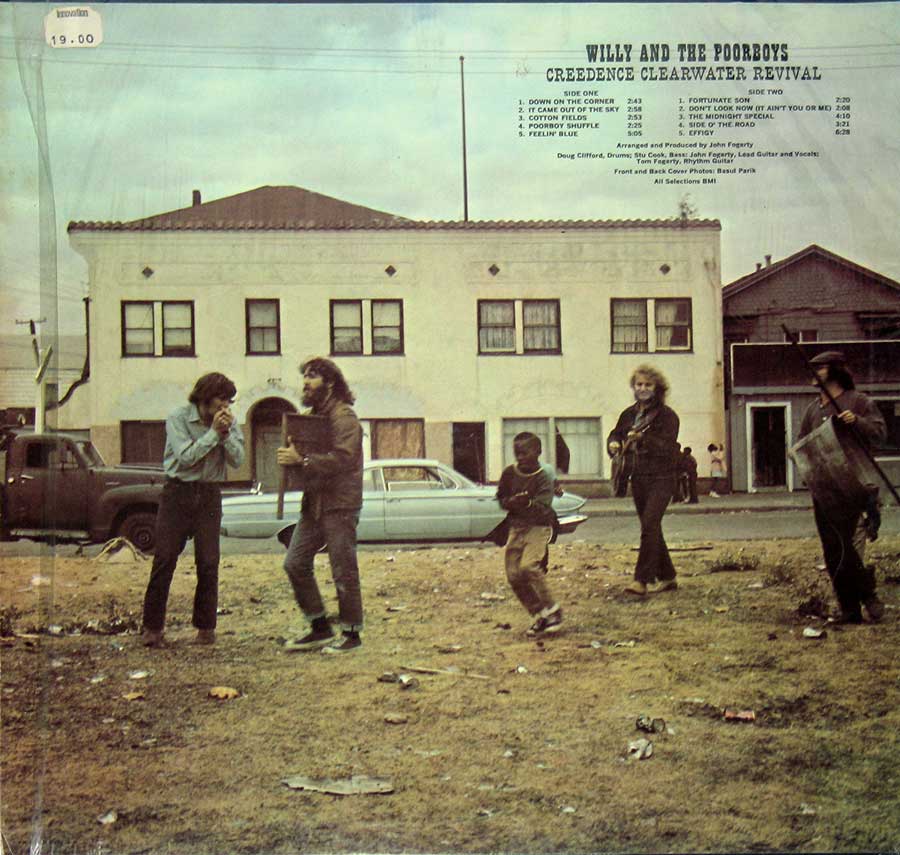
"Willy and the Poorboys" Dark Blue Colour Fantasy Record Label Details: Fantasy 8397 Full Radial Stereo
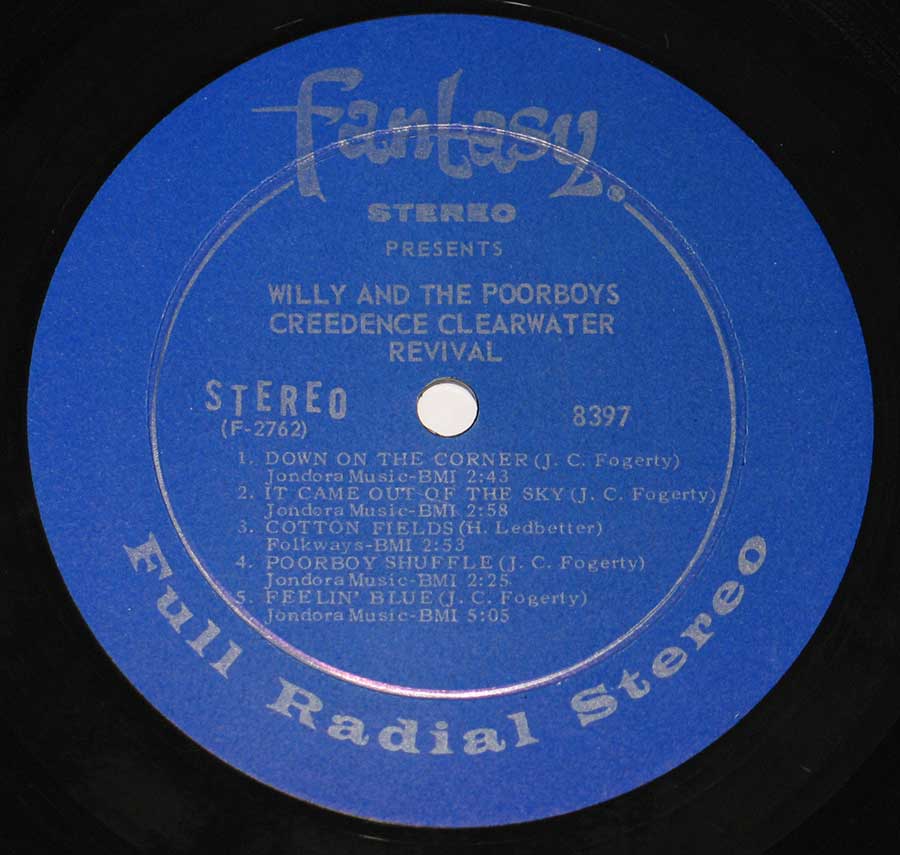
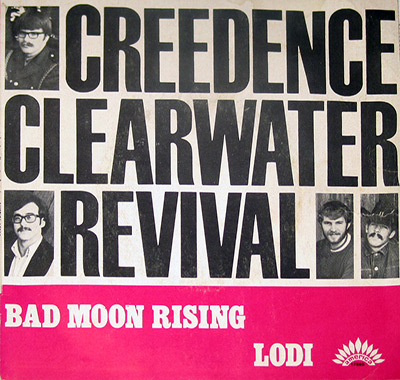
"Bad Moon Rising" was written by John Fogerty and released as a single in April 1969. The song reached number two on the Billboard Hot 100 and remained on the charts for 16 weeks. The song's catchy melody and memorable lyrics made it an instant classic, and it has since become one of the most recognizable rock songs
Learn more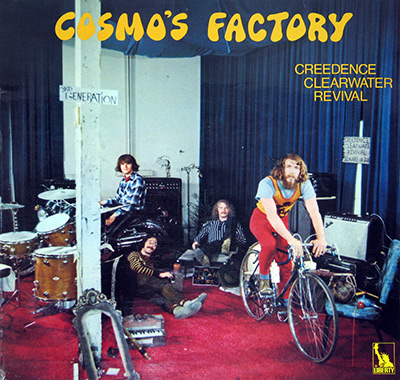
The album title itself is a testament to the band's relentless work ethic. "Cosmo's Factory" refers to the Berkeley warehouse where CCR honed their craft through countless rehearsals. Drummer Doug "Cosmo" Clifford's nickname for the space speaks to the band's dedication, a quality reflected in the album
Learn more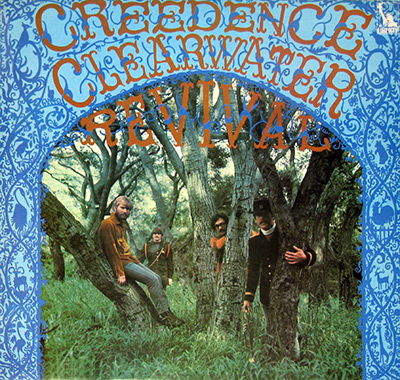
The album's standout track is undoubtedly "Susie Q," a cover of the Dale Hawkins classic. CCR's version of the song features a slowed-down tempo and a heavier groove, with Fogerty's vocals and guitar work providing a haunting and intense atmosphere. The song was a huge hit for the band, reaching #11 in the US
Learn more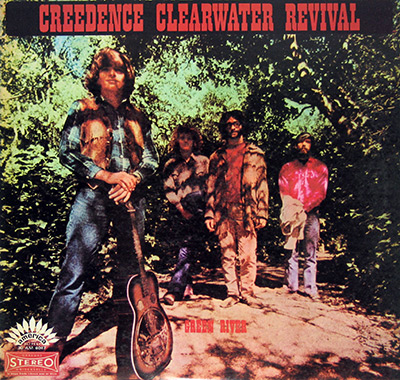
The album's title track, "Green River," is a lively and upbeat song that celebrates the simple joys of life in the countryside. The song's catchy guitar riffs and driving rhythm provide the perfect backdrop for John Fogerty's distinctive vocals, which are at once plaintive and soulful.
- Green River (Europe) - Green River (USA)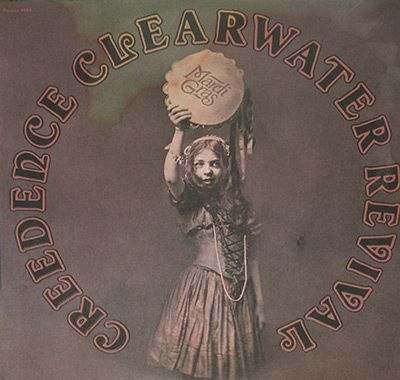
"Mardi Gras" is the final album by the American rock band Creedence Clearwater Revival (CCR). The album was released on April 11, 1972, by Fantasy Records. The album was recorded after the departure of CCR's primary songwriter and lead vocalist, John Fogerty.
Learn more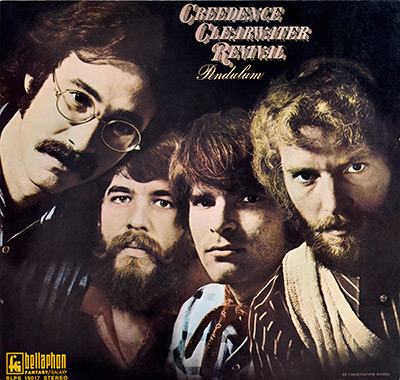
At the tail end of 1970, Creedence Clearwater Revival (CCR) released their sixth studio album, "Pendulum." While one of their lesser-known albums today, its release signaled a pivotal turning point in the history of the band and their unique swamp-rock sound.
- Pendulum (Germany) - Pendulum (USA, Fantasy Records)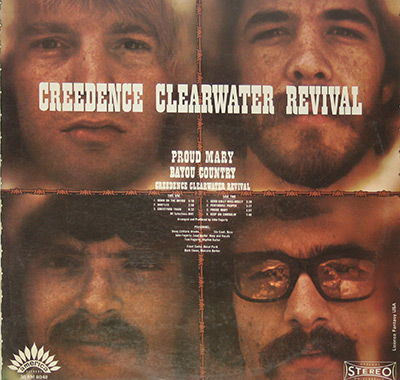
Bayou Country was CCR's second album and established the band's distinctive sound and style. The album was recorded in just three days in the fall of 1968, and its raw energy and stripped-down production captured the essence of CCR's live performances.
Learn more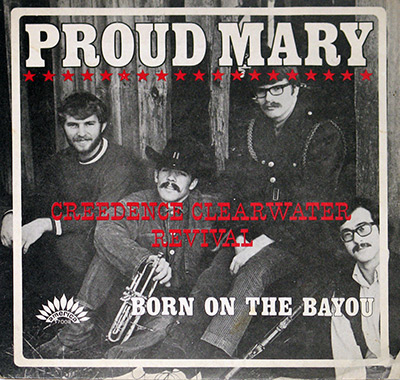
"Proud Mary" and "Born on the Bayou" are two of CCR's most iconic songs, and both are known for their distinctive sound and catchy hooks. "Proud Mary" is a fast-paced, upbeat tune that features a memorable guitar riff and a driving rhythm section. The song's lyrics tell the story of a riverboat captain
Learn more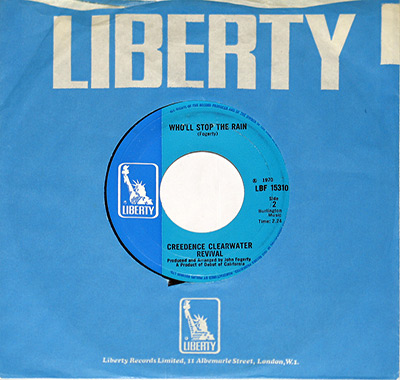
"Who'll Stop the Rain" is a reflective, introspective song that features lead singer John Fogerty's distinctive vocals and haunting harmonies. The song's lyrics describe the experience of being caught in a rainstorm, and the sense of despair and hopelessness that can come with it.
Learn more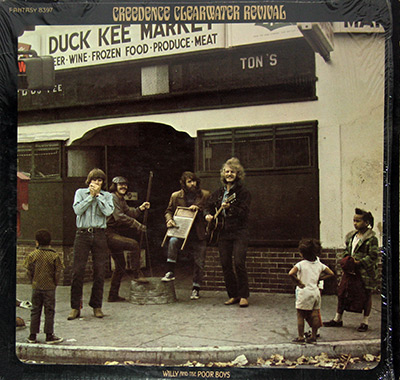
The album opens with "Down on the Corner," a lively and upbeat track that showcases the band's tight harmonies and driving rhythm section. The song's catchy melody and sing-along chorus made it an instant hit, and it remains one of CCR's most popular tracks to this day.
Learn more